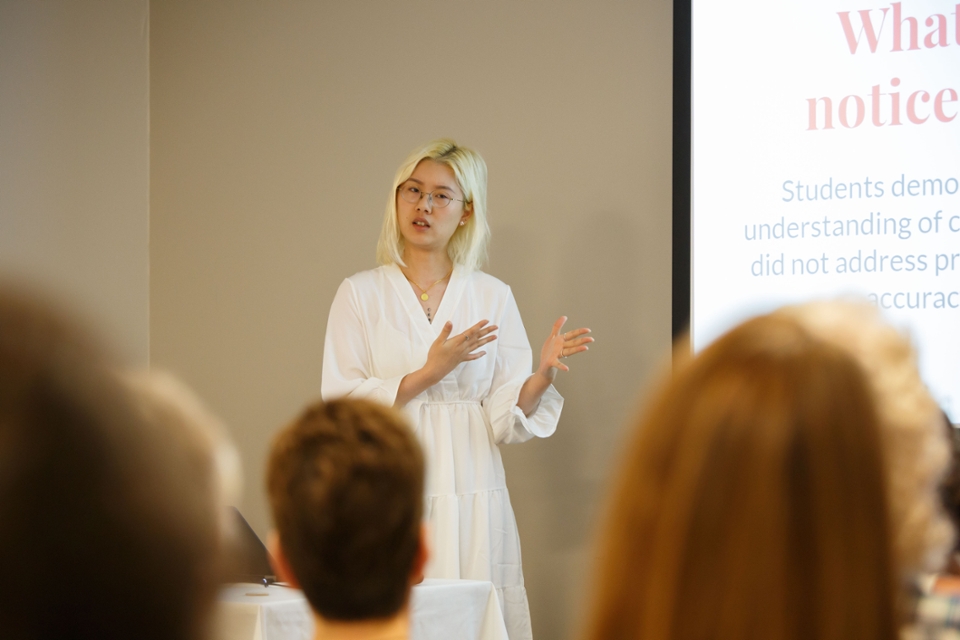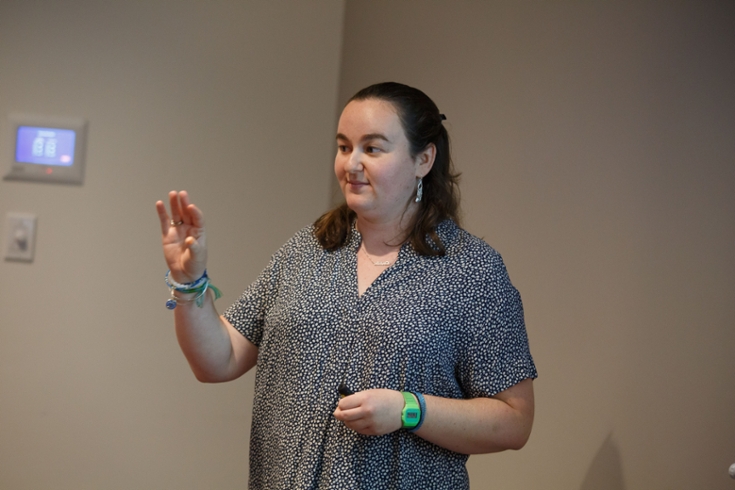Student Research

MAT Teacher Research Project
Teacher research is systematic, intentional inquiry conducted in and for practice on a matter that is of concern to you as a teacher-researcher and relevant to the profession. The Teacher Research Project is the culminating element of the MAT degree, and is required for graduation.
Our Process
-
In December/January, students will identify an area of interest and begin to frame a question. Over the next several months, they refine their question, develop a plan for data collection (typically including an action component) and begin to collect data—all the while continuing to teach.
-
For the remaining school year—again, teaching all the while—students continue to collect data, begin the process of data analysis, reflect, plan and collect more data. In the second MAT summer, students continue to analyze data, identify findings, frame conclusions and pose questions for further inquiry.
-
Finally, as part of MAT graduation and research symposium, students present findings to faculty, friends and colleagues.
Recent MAT Research Topics
-
how students think and learn
-
how to engage students “in the margins”
-
how to promote student questions
-
the benefits of movement breaks
-
how to integrate empathy, mindfulness and discipline
-
how to tailor teaching to students of low socioeconomic status
-
the challenges social media poses to literacy
-
using hip hop to teach canonical poetry
-
the importance of creative writing
-
incorporating female voices into history lessons
Student Research Spotlight
Watch Sydney Bluman as she talks about how by using warm welcome messages, a morning question, and more, she was able to create a strong morning routine that impacted her 3rd graders’ behavior.
“The Brandeis Master of Arts in Teaching program guided me to become a teacher who learns with her learners. Knowing that I am not the one-stop center for knowledge in my classroom has made me a better teacher, mostly because it simultaneously pushes me to constantly research and appreciate my students as both learners and teachers.”
Selah Agaba, MAT
